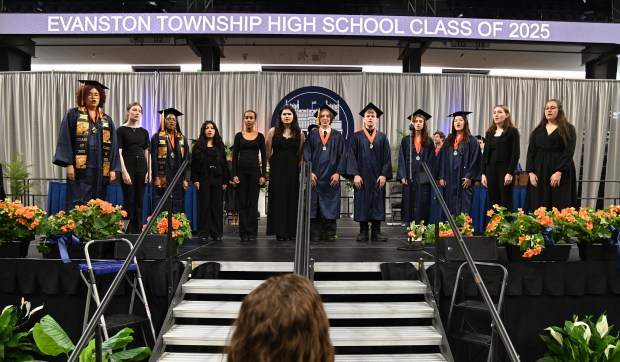A Merrillville man convicted of murdering and raping his girlfriend nearly 35 years ago will serve his sentence in community corrections.
Lake Superior Court Judge Natalie Bokota on Friday sentenced Tyrone Andrew McKee, 61, to 10 years, with eight of them to be served in Lake County Community Corrections and two years’ probation for the November 1988 murder of Colleen Daphne Callahan. McKee admitted via a plea agreement on Feb. 29 to plead guilty to criminal confinement, a Class B Felony.
McKee’s attorney John Cantrell said that McKee is a “different man” from who he was in 1987, when he committed the first of six felony charges he’d accrued. After being released from prison in 2013, McKee has been steadily employed and is described by his coworkers as “a gentleman” who’s “nice and caring.”
“Community corrections accepted him as a viable candidate. He’s been gainfully employed and has accepted responsibility (for Callahan’s death),” Cantrell said.
Deputy Prosecutor Michelle Jatkewicz, however, reminded the court that “Colleen is gone and has been for 40 years.”
In his defense, McKee said that he was a young man involved in drugs and alcohol but that he’s “learned and grown up” from his mistakes. He said he was sorry that he was before the court.
Bokota noted that he didn’t say he was sorry for killing Callahan.
“Your cases are more than 10 years old, but I see no expression of remorse for the crime,” Bokota said. “(Callahan) was pregnant, and she left children behind.”
McKee will receive 629 days of credit for having served time between October 2019 and June 2021, and more time in 2022, Bokota said.
In the plea deal, McKee admitted he got into an “argument” over “money” with 23-year-old Colleen “Daphne” Callahan on Nov. 9, 1988, in the 2300 block of Massachusetts Street, before blocking her from leaving and fatally beating her. McKee’s DNA was found on her.
When the case was opened in 2019, authorities said the new DNA hit and witnesses who now talked made it possible.
The FBI Gang Response Investigative Team submitted her rape kit in May 2018 to the Indiana State Police’s Lowell lab for DNA testing, according to the probable cause affidavit. Court records said the test results picked up a partial DNA profile from two individuals, at least one of which was male.
Analysts entered the sample into the Combined DNA Index System, and the results indicated it belonged to McKee, records said. Officers then looked at previous arrest records for McKee, one of which listed a property two houses down from the building where Callahan was found dead as his address, records said.
McKee acknowledged that his mom worked at a hotel a block away from the murder scene, but denied knowing Callahan even after officers showed him a photo of him in front of the building in which she was found, records said.
Officers then spoke with witnesses named in the original case records, who confirmed that Callahan and McKee were dating at the time of her death. The witnesses told police that they were previously afraid to come forward, records said.
He was charged with one count of murder, one count of murder while committing or attempting to commit rape, and one count of rape.
Callahan’s body was found on the afternoon of Nov. 9, 1988, in an abandoned house on the 2400 block of Connecticut Street.
Callahan was found lying on a floor littered with broken glass and pieces of a window frame, and she had numerous injuries and deep lacerations to her legs, Post-Tribune archives stated. Police said at the time that she had been sexually assaulted.
The autopsy indicated the cause of death was injuries from a blunt instrument, the archive stated. Other court documents said she had a skull fracture, rib fractures, internal bleeding and other wounds.
At the time of her death, Callahan was the mother of four daughters, ranging in age from 1 to 6 years.
Michelle L. Quinn is a freelance reporter for the Post-Tribune. Reporter Meredith Colias-Pete contributed.



